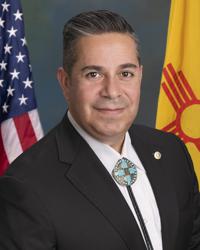0
0
0
Stop Fentanyl at the Border Act
1/25/2024, 5:15 AM
Summary of Bill S 3591
Bill 118 s 3591, also known as the Stop Fentanyl at the Border Act, is a piece of legislation introduced in the US Congress with the aim of combating the influx of fentanyl into the country. Fentanyl is a powerful synthetic opioid that is responsible for a significant portion of overdose deaths in the United States.
The bill proposes several measures to address the issue of fentanyl trafficking at the border. One key provision is the requirement for the Department of Homeland Security to implement new technologies and strategies to detect and intercept fentanyl shipments coming into the country. This includes increasing the use of advanced screening equipment and enhancing coordination with international partners to target fentanyl suppliers.
Additionally, the bill calls for increased penalties for individuals caught trafficking fentanyl, with harsher punishments for those who are found to be repeat offenders. This is intended to serve as a deterrent to those who may be involved in the illegal distribution of fentanyl. Furthermore, the Stop Fentanyl at the Border Act also includes provisions for increased resources and training for law enforcement agencies to better identify and respond to fentanyl-related incidents. This includes funding for additional personnel and equipment to support efforts to combat the fentanyl crisis. Overall, the Stop Fentanyl at the Border Act is a comprehensive piece of legislation aimed at addressing the growing threat of fentanyl trafficking in the United States. By implementing new technologies, increasing penalties for offenders, and providing additional resources for law enforcement, the bill seeks to stem the flow of fentanyl into the country and prevent further harm caused by this dangerous drug.
The bill proposes several measures to address the issue of fentanyl trafficking at the border. One key provision is the requirement for the Department of Homeland Security to implement new technologies and strategies to detect and intercept fentanyl shipments coming into the country. This includes increasing the use of advanced screening equipment and enhancing coordination with international partners to target fentanyl suppliers.
Additionally, the bill calls for increased penalties for individuals caught trafficking fentanyl, with harsher punishments for those who are found to be repeat offenders. This is intended to serve as a deterrent to those who may be involved in the illegal distribution of fentanyl. Furthermore, the Stop Fentanyl at the Border Act also includes provisions for increased resources and training for law enforcement agencies to better identify and respond to fentanyl-related incidents. This includes funding for additional personnel and equipment to support efforts to combat the fentanyl crisis. Overall, the Stop Fentanyl at the Border Act is a comprehensive piece of legislation aimed at addressing the growing threat of fentanyl trafficking in the United States. By implementing new technologies, increasing penalties for offenders, and providing additional resources for law enforcement, the bill seeks to stem the flow of fentanyl into the country and prevent further harm caused by this dangerous drug.
Read the Full Bill
Current Status of Bill S 3591
Bill S 3591 is currently in the status of Bill Introduced since January 16, 2024. Bill S 3591 was introduced during Congress 118 and was introduced to the Senate on January 16, 2024. Bill S 3591's most recent activity was Read twice and referred to the Committee on Homeland Security and Governmental Affairs. as of January 16, 2024
Bipartisan Support of Bill S 3591
Total Number of Sponsors
1Democrat Sponsors
1Republican Sponsors
0Unaffiliated Sponsors
0Total Number of Cosponsors
18Democrat Cosponsors
18Republican Cosponsors
0Unaffiliated Cosponsors
0Policy Area and Potential Impact of Bill S 3591
Primary Policy Focus
Alternate Title(s) of Bill S 3591
Stop Fentanyl at the Border Act
Stop Fentanyl at the Border Act
A bill making appropriations to improve border security, imposing new reporting requirements relating to border security, and enhancing criminal penalties for destroying or evading border controls.
Comments
Sponsors and Cosponsors of S 3591
Latest Bills
Holocaust Expropriated Art Recovery Act of 2025
Bill S 1884December 12, 2025
Enduring Justice for Victims of Trafficking Act
Bill S 2584December 12, 2025
Increasing Investor Opportunities Act
Bill HR 3383December 12, 2025
Great Lakes Fishery Research Reauthorization Act
Bill S 2878December 12, 2025
Electric Supply Chain Act
Bill HR 3638December 12, 2025
State Planning for Reliability and Affordability Act
Bill HR 3628December 12, 2025
A joint resolution providing for congressional disapproval under chapter 8 of title 5, United States Code, of the rule submitted by the Office of the Secretary of the Department of Health and Human Services relating to "Policy on Adhering to the Text of the Administrative Procedure Act".
Bill SJRES 82December 12, 2025
Providing for consideration of the bill (H.R. 2550) to nullify the Executive Order relating to Exclusions from Federal Labor-Management Relations Programs, and for other purposes.
Bill HRES 432December 12, 2025
Mining Regulatory Clarity Act
Bill HR 1366December 12, 2025
Legacy Mine Cleanup Act of 2025
Bill S 2741December 12, 2025





